Sun and Moon
Claude MonetA French Impressionist painter known for his vibrant and atmospheric depictions of landscapes and everyday scenes.
Today AI generated programs marvel the world with unseen images of all kind. Generated from thousands and thousands of public images with unseen results. Adaptive or transformative. We use transformative.
Here a variation on sun and moon transformative generated images, based on the style of Claude Monet.
Enjoy!
PS
The portrait of the painter in featured image is transformative fictious and AI transformative generated as well.
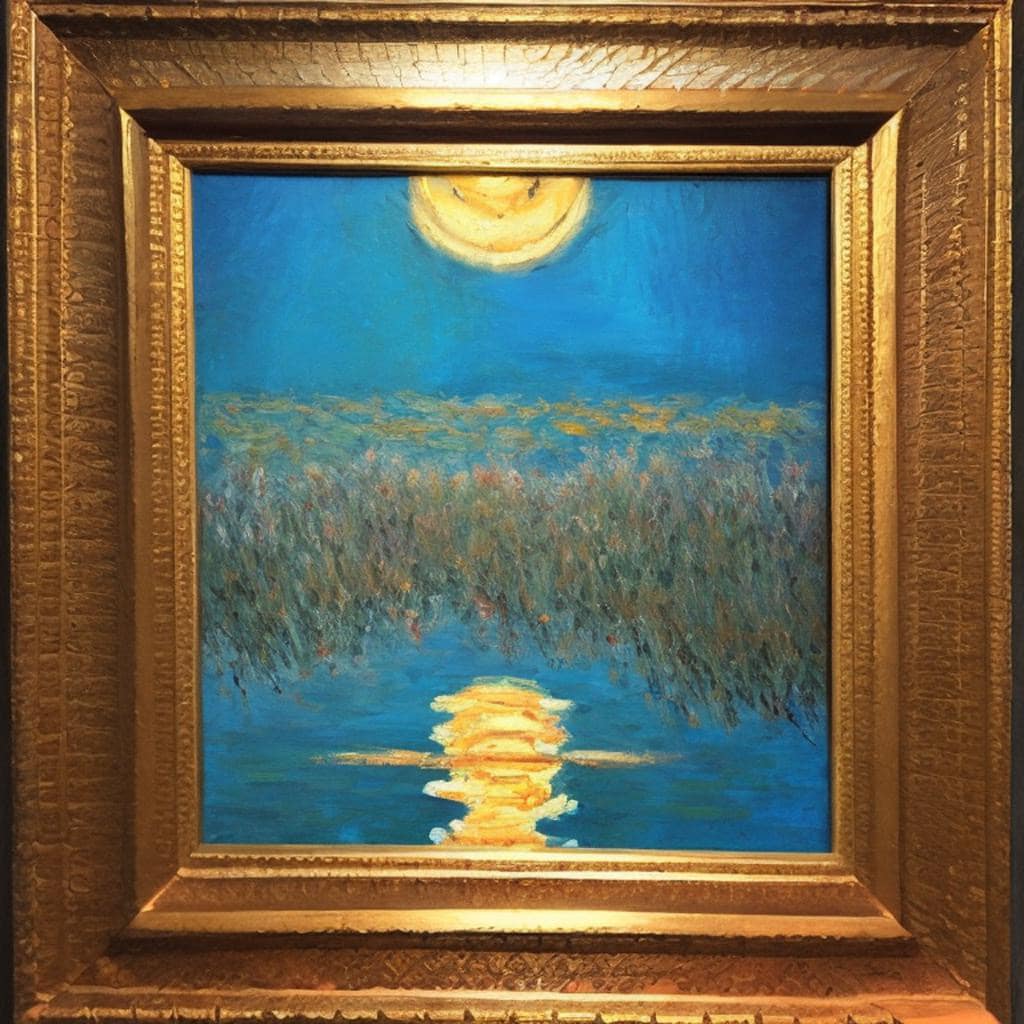
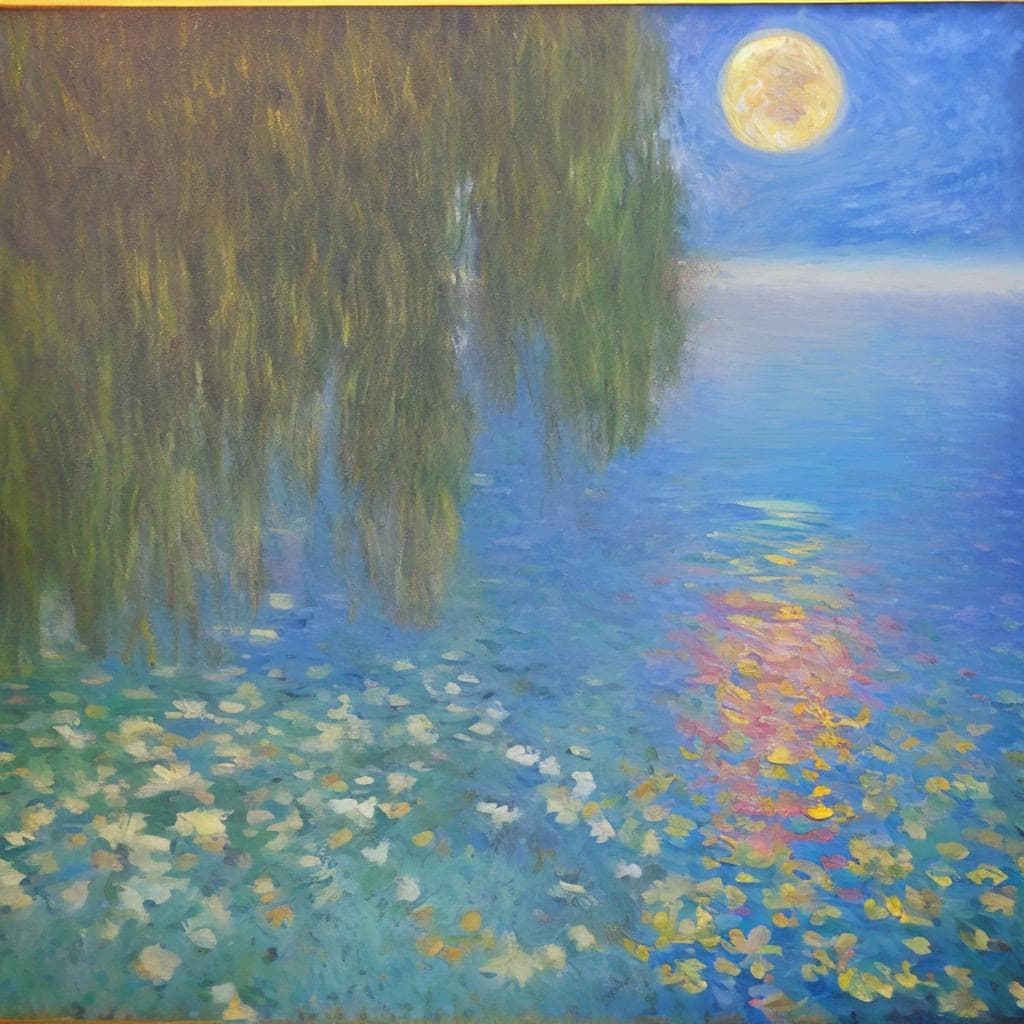
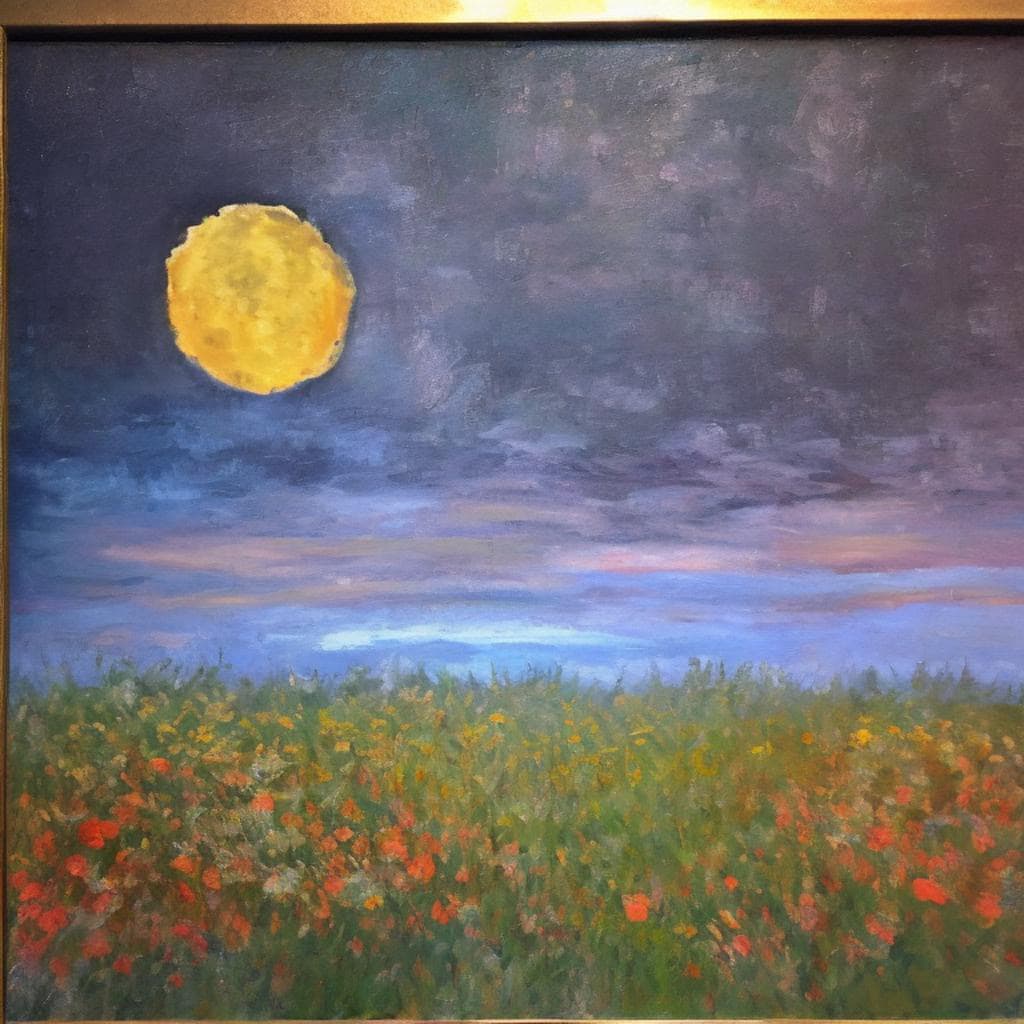
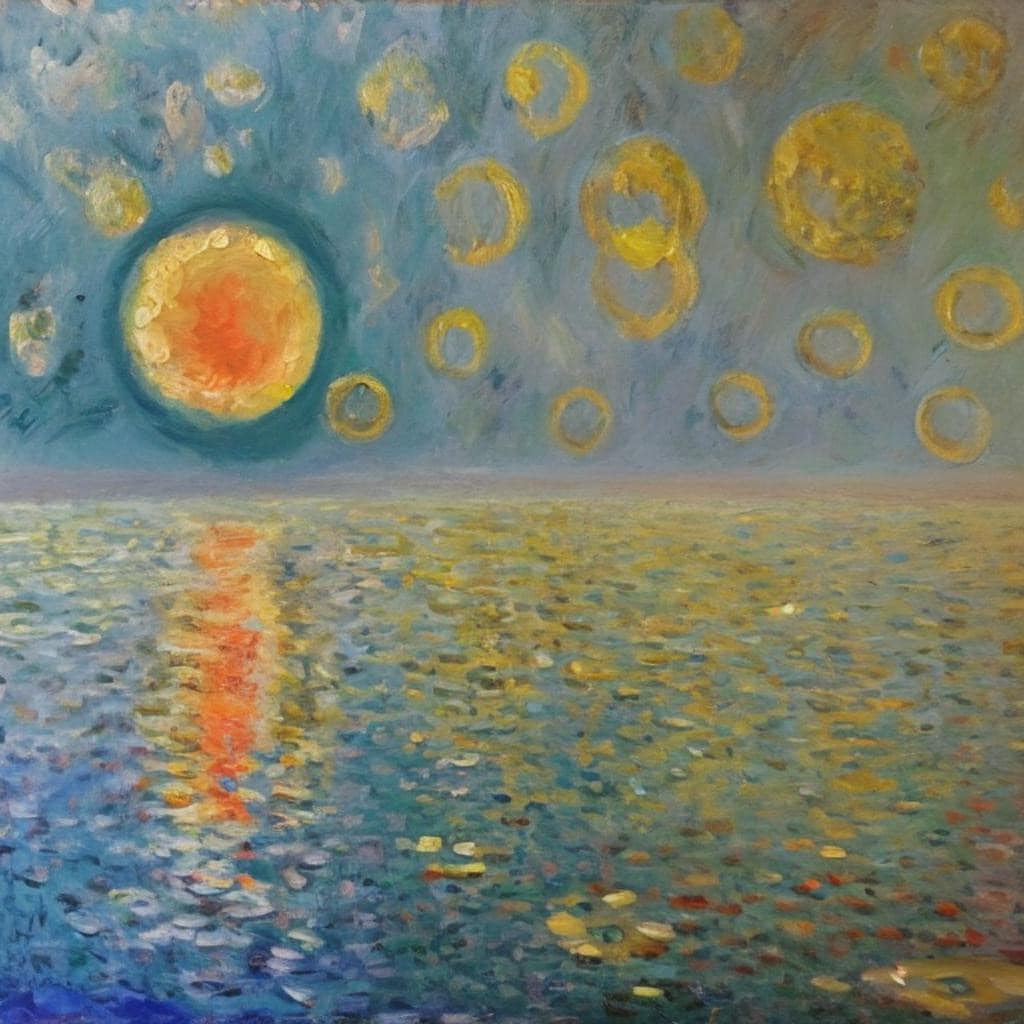
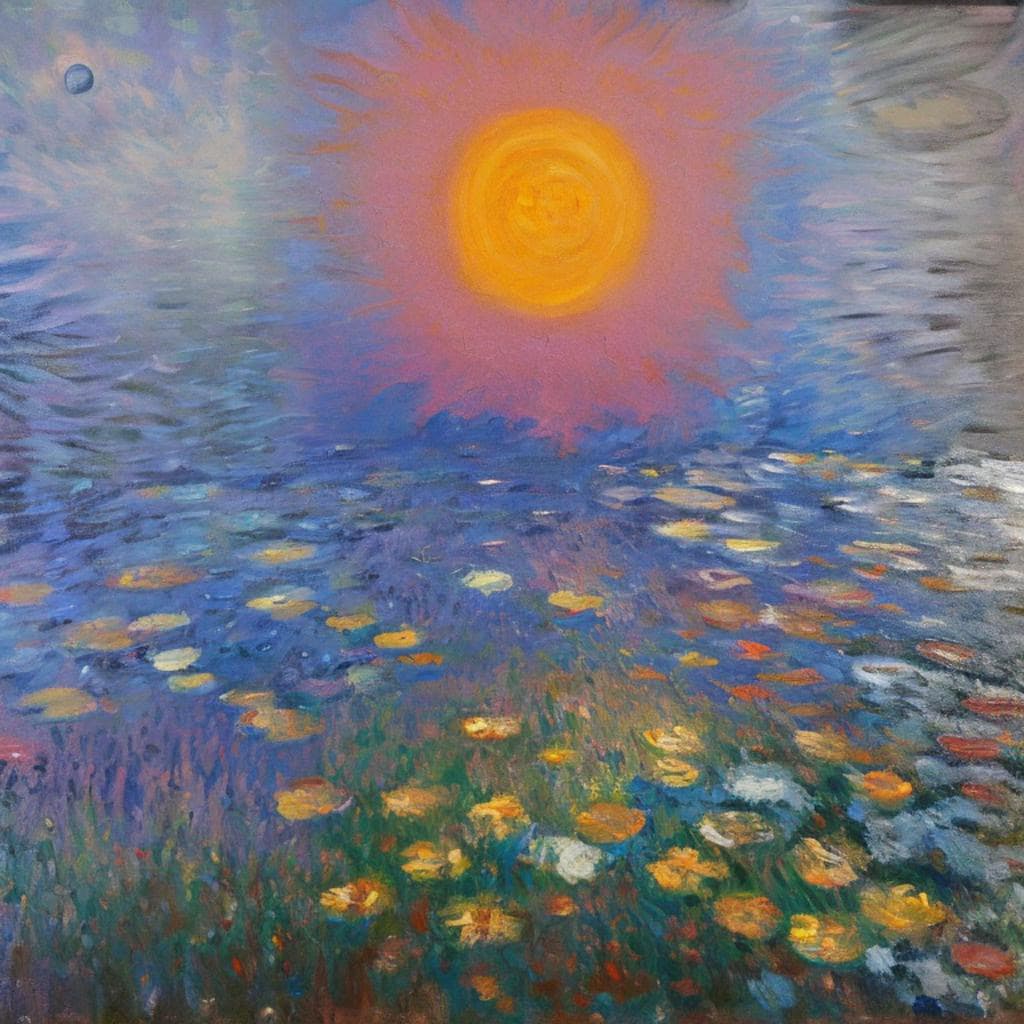
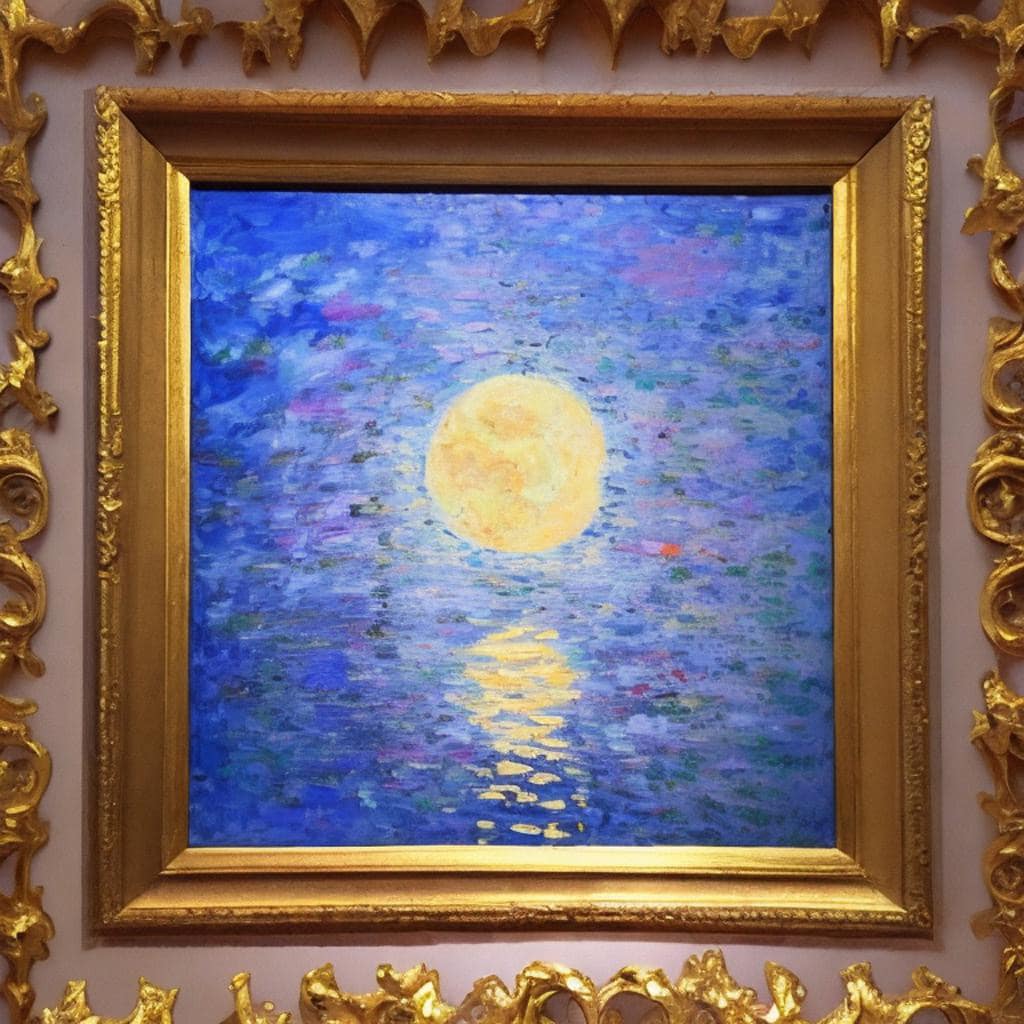
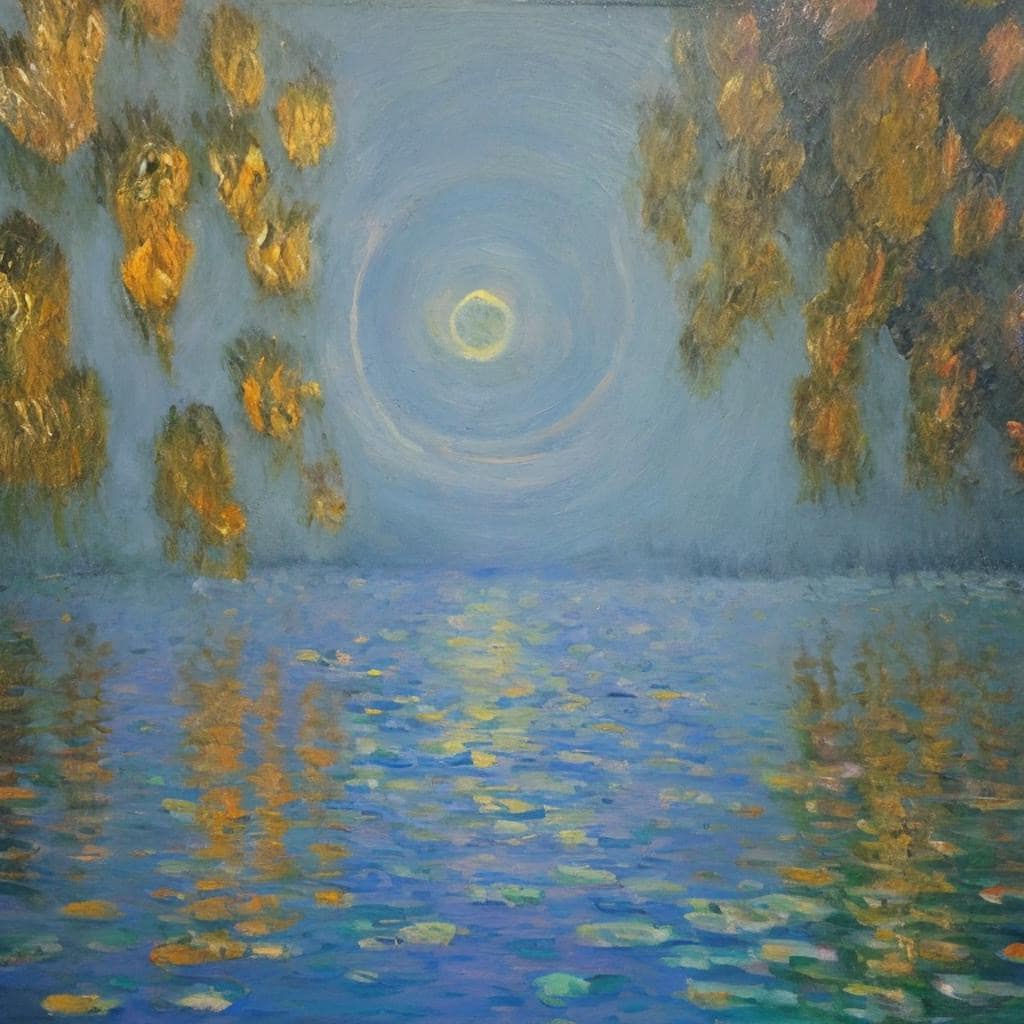
Biography of Claude Monet
Claude Monet, born on November 14, 1840, in Paris, France, is widely regarded as one of the greatest painters of the 19th century. He is known for his innovative use of light and color, and for his role as a leading figure in the Impressionist movement.
Monet was born into a middle-class family, and he showed an early interest in art. As a child, he would often sketch outdoors, and he began taking lessons from local artists at the age of 11. Despite his talent, his father did not initially support his artistic aspirations, and he urged Monet to pursue a more practical career.
In 1857, Monet moved to Paris to study art. There, he met other aspiring artists, including Pierre-Auguste Renoir and Frederic Bazille, and he began experimenting with new techniques and styles. He was particularly interested in the play of light and color, and he spent hours studying the effects of sunlight on different surfaces.
In 1861, Monet was drafted into the military, but he was discharged two years later due to health problems. He returned to Paris and resumed his art studies, but he struggled to make a living from his work.
In the 1870s, Monet began to gain recognition for his work. He was part of a group of artists who rejected the traditional academic style of painting in favor of a more modern approach. They were known as the Impressionists, and their work was characterized by its emphasis on light and color, and its focus on everyday life.
Monet’s most famous works were his series of paintings of water lilies, which he began in the 1890s. These paintings were an exploration of color and form, and they were inspired by the gardens at his home in Giverny. Monet would spend hours observing the changing light and colors in the garden, and he would paint dozens of versions of the same scene, each one capturing a different mood or moment.
Despite his success, Monet faced many personal challenges in his life. He suffered from depression and financial struggles, and he was devastated by the death of his wife and son. But he continued to paint, and he remained dedicated to his art until the end of his life.
Monet died on December 5, 1926, at the age of 86. His legacy lives on in his paintings, which continue to inspire and captivate audiences around the world. His pioneering use of light and color, and his innovative approach to art, have made him one of the most influential artists of all time.
Table with ten of Claude Monet’s most famous works, along with their titles, subjects, and meanings
| Title | Subject | Meaning |
| Impression, Sunrise | Harbor scene at sunrise | A landmark work that gave its name to the Impressionist movement, emphasizing the importance of light and color over traditional forms and techniques. |
| Water Lilies | Series of paintings of Monet’s garden pond | A contemplative and introspective exploration of color, light, and form, capturing the subtle nuances of nature and its changing moods. |
| Rouen Cathedral | Series of paintings of the cathedral in Rouen | A study of the changing effects of light and weather on the same subject, demonstrating the beauty and transience of the natural world. |
| Woman with a Parasol | Portrait of Monet’s wife and son | A tender and intimate portrayal of family life, capturing the joy and beauty of everyday moments. |
| Poppy Field | Field of poppies | An explosion of color and vitality, expressing the beauty and power of nature, and the importance of living in the present moment. |
| Haystacks | Series of paintings of haystacks in different light conditions | An exploration of the transformative power of light, and its ability to imbue even the most mundane objects with beauty and meaning. |
| Gare Saint-Lazare | Train station scene | An innovative depiction of modern life, emphasizing the industrial and mechanical aspects of the urban landscape. |
| The Japanese Footbridge | Footbridge in Monet’s garden | A contemplative and serene exploration of nature, capturing the essence of a peaceful and tranquil world. |
| The Seine at Giverny | View of the Seine river | A celebration of the power and beauty of nature, and an expression of Monet’s deep connection to his surroundings. |
| The Boulevard des Capucines | Street scene in Paris | A pioneering work that challenged traditional notions of composition and perspective, emphasizing the fleeting and transitory nature of modern life. |
These works represent only a small portion of Monet's vast and varied body of work, but they are among his most famous and influential.
Make sure to visit the Monet Foundation
Thank you for questions, shares and comments!
Share your thoughts or questions in the comments below!
Text with help of openAI’s ChatGPT Laguage Models & Fleeky – Images with help of Picsart & MIB






